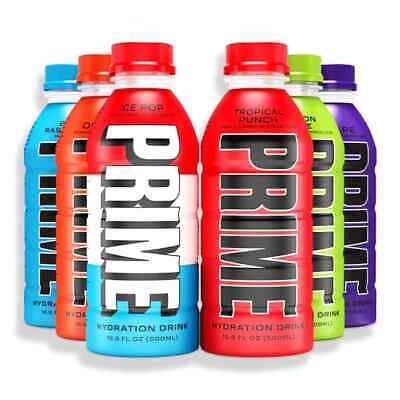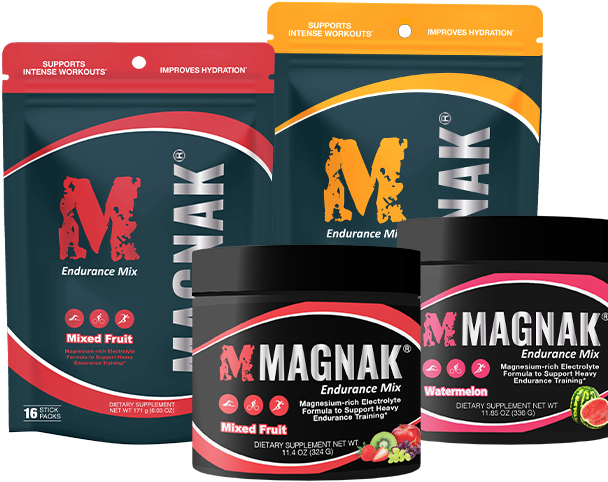Energy drinks are at it again: and there's nothing "PRIME" about this one.
Energy drinks have made it to their headers listing for many years. They promise a lot. Energy, alertness, the boost you need to get started in the morning or during a workout. But does it pan out?
Some energy drinks, such as Red Bull and Monster have doctors concerned for a long time. There is a reason for it. Many of these ingredients have not been studied on human physiology in a systematic way.
Caffeine in high amounts has many problems which we all know. The colors are artificial at least in some of the energy drinks (like Rockstar). So why shouldn't everyone be concerned about it?
The problem is not having an occasional drink. Most of those who like these consume it daily or many times a day. And that is a problem. Moderation in our society, has lost its path. Moderation with alcohol or in sugar intake. We are on an addictive path and energy drink just gives you one more thing to get addicted to.

But recently, PRIME, a super-caffeinated “energy” drink was advertised a lot on TikTok. Particularly towards millennials and teens where it has gained the most popularity, since the founders of the company already have a millennial and generation-Z following.
What are the problems with PRIME?
The real concern with the drink remains its CAFFEINE content. Each can of 355 ml of PRIME contains about 200 mg of caffeine. To give you a perspective, it is more than twice the amount of caffeine in a can of Red Bull. Or equivalent to 3 large cups of coffee or 6 cans of Coca Cola. This amount of caffeine consumed even by an adult can lead to problems.
Caffeine has never been used as a good hydrating agent. Caffeine dehydrates you and works like a weak diuretic (people used to get this as a medicine to lose water when you had water retention). Caffeine can cause high blood pressure, accelerated and an abnormal heart rate and many effects on the heart that have not yet been studied in a systematic clinical trial.
Is PRIME safe for Kids?
Well, the contents, particularly the caffeine, are not. I would never give so much caffeine to my 14-year-old and probably, would not do so even for an adult. The purpose of this drink is what exactly?
Energy?- You cannot get it from caffeine and sugar and certainly not those artificial colors.
Stimulation? – Hard to argue with that much caffeine content.
Attention and focus?- Caffeine does not increase attention span. Persistent heavy use of caffeine causes anxiety, tremors and jitteriness. So there goes your attention span.
Most importantly, excessive caffeine in PRIME and other energy drinks can cause cardiac arrhythmias. In early adulthood and teens, heart muscle is not geared to excessive stimulation and can go into an abnormal rhythm. This can be dangerous. Even those who exercise (and are fit) are not immune from the effects of caffeine on the heart and blood pressure (see references below).
Alternatives to PRIME
Focus on science. We use hydration drinks to hydrate. Which means the base has to be water, the sugar content has to be low and the drink has to be rich in nutrients and electrolytes.
You can get nutrients from natural juices or their extracts. Ensure that the mineral content (potassium, magnesium and sodium) is appropriate.
If you have a hard time hydrating with healthier energy drinks, MAGNAK is for you.

MAGNAK is rich in magnesium, sodium and potassium to allow hydration for your body and stimulate blood supply to your exercising muscles. The natural flavor makes it easy to drink. The low sugar content removes bloating. And it has NO caffeine. Like we discussed, caffeine is a diuretic- it removes water from your body. And the magnesium content can reduce the risk of cardiac arrhythmias (note: magnesium sulfate is used in the hospitals to treat a variety of cardiac rhythm disorders).
As a physician, these energy drinks have me concerned. No wonder, PRIME energy drink is banned in Australia and New Zealand. UK will likely follow the same. Many schools in the US are now taking measures to educate kids and teens about the dangers of drinking too much caffeinated drinks. Cardiac effects of heavy caffeine ingestion are real issues that concern public health. And it is good to see that the US FDA is now looking into this issue too.
